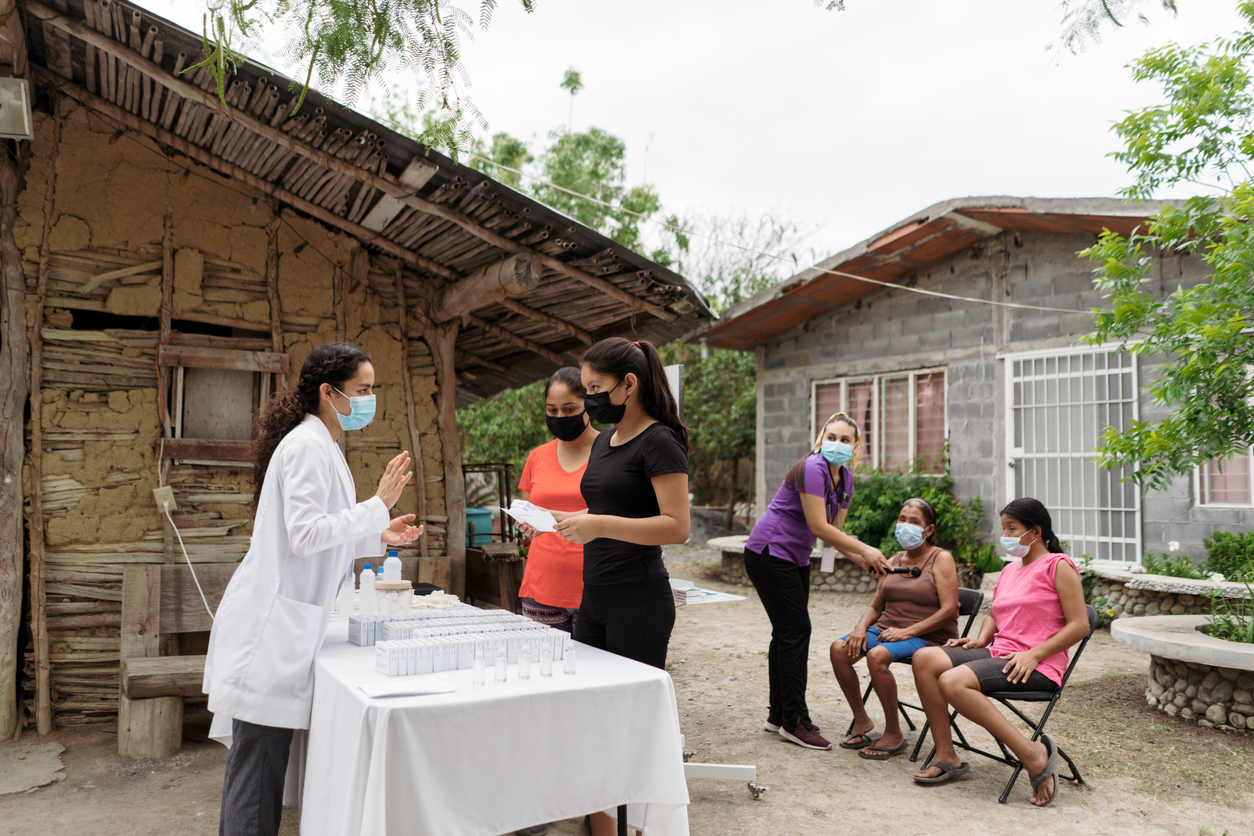Community-Based Patient Recruitment in Latin America

In the world of clinical research, patient recruitment is a critical step that determines the success of clinical trials. Traditionally, many trials have struggled with recruiting a diverse pool of participants, which can lead to skewed results that do not represent broader populations. In response, community-based patient recruitment strategies have gained traction, particularly in Latin America, where they offer significant advantages compared to the recruitment approaches commonly used in Europe or the United States.
Community-based recruitment strategies in Latin America are rooted in a deep understanding of the socio-cultural dynamics of the region. This approach has proven to be effective because it fosters trust, improves engagement, and attracts a more diverse population to clinical trials. In contrast, Europe and the U.S., with their more structured healthcare systems, often employ more institutional recruitment approaches that may not fully connect with local communities or underrepresented populations.
The Importance of Building Trust in Latin America
In Latin America, healthcare systems are often a patchwork of public and private institutions, with access to care varying widely between urban and rural areas. For clinical trials, engaging with local communities through trusted channels is essential. There is often a significant degree of skepticism toward healthcare systems and foreign-led clinical research, particularly in rural or underserved communities. Mistrust can stem from a history of social inequalities and perceived exploitation by external entities, including pharmaceutical companies.
To overcome this, community-based recruitment focuses on establishing genuine relationships with local healthcare providers, community leaders, and non-governmental organizations. These entities serve as trusted intermediaries, vouching for the integrity of the trials and the benefits they bring to participants. Local doctors, nurses, and health workers, who often have established long-term relationships with community members, play a key role in educating and informing patients about clinical trial opportunities.
In contrast, recruitment strategies in Europe and the U.S. often rely on centralized systems such as large hospital networks, patient databases, and electronic health records (EHRs). While effective, these methods can miss important segments of the population, particularly marginalized groups who may not frequently engage with the healthcare system or have access to advanced technology. Latin America’s approach, on the other hand, tends to be more grassroots, ensuring deeper community involvement and understanding.
Focusing on the Needs of Clinical Trial Participants
One of the hallmarks of successful community-based recruitment in Latin America is the emphasis on patient-centricity. Understanding the specific needs, cultural sensitivities, and concerns of trial participants is critical to building trust and securing enrollment. This often involves tailoring communication to account for language barriers, varying levels of health literacy, and misconceptions about clinical research.
For instance, trial organizers may need to provide materials in indigenous languages or make an effort to explain the trial processes in clear, non-technical terms. Moreover, the benefits to the community—such as improved healthcare access or education about certain diseases—are often highlighted, emphasizing the mutual benefit of participation. In many cases, participants see involvement in clinical trials not just as a personal health opportunity but as a way to help improve the health of their broader community.
In contrast, Europe and the U.S. typically operate in environments with better infrastructure, allowing for more efficient but sometimes more impersonal recruitment efforts. Patient recruitment often happens through clinical trial websites, social media, or via patient registries, which may not always resonate on a personal or community level. While digital recruitment can reach a large number of potential participants, it lacks the personal engagement that is key in Latin America, where healthcare decisions are often made based on interpersonal relationships and trust.
Diversity and Inclusion in Clinical Trials
One of the most significant advantages of community-based recruitment is its ability to attract a diverse pool of trial participants. In the U.S. and Europe, clinical trials have historically struggled with recruiting diverse participants, with racial and ethnic minorities, rural populations, and economically disadvantaged individuals often underrepresented. This lack of diversity can lead to results that do not reflect how treatments might affect different populations, which is a growing concern for regulatory agencies like the FDA and EMA.
In Latin America, where there is a rich diversity of ethnic backgrounds and socio-economic conditions, community-based recruitment helps ensure that trials are more representative. By directly engaging with local communities, recruitment strategies can reach populations that would otherwise be overlooked. This inclusivity is crucial not just for the validity of the trial results but also for the ethical integrity of the research.
Furthermore, in many Latin American countries, participation in clinical trials can offer patients access to treatments they may not otherwise be able to afford or access, thus providing a compelling reason for engagement. In contrast, in Europe and the U.S., where access to healthcare is generally higher, the incentive structure for trial participation is different, and recruitment strategies must often rely on appealing to altruism or curiosity about experimental treatments rather than immediate health benefits.
Long-Term Engagement and Retention
Once participants enroll in a clinical trial, maintaining their engagement throughout the study is crucial. Community-based strategies have the advantage of creating strong relationships with participants, which leads to higher retention rates. Patients who feel that their personal well-being and that of their community is valued are more likely to remain committed to the trial process. This sense of shared purpose is a cornerstone of community-based recruitment efforts in Latin America.
By comparison, trials in Europe and the U.S. often suffer from higher dropout rates, especially among underrepresented groups. These populations may feel less personally connected to the trial organizers or may perceive the research as more impersonal or transactional. In Latin America, however, personal engagement, communication, and the visible impact of trials on the community encourage long-term participation.
The H Clinical View
Community-based patient recruitment strategies are uniquely suited to Latin America due to the region’s diverse population, varying healthcare access, and the need to build trust with local communities. These strategies differ from those commonly used in Europe and the U.S., where recruitment is often more centralized and less personal. By focusing on building trust, addressing the specific needs of participants, and fostering diversity, community-based recruitment not only improves enrollment but also ensures that trials are more inclusive and representative. For clinical trials in Latin America, this approach is proving to be a critical factor in their success.
Sources
- Bueno, A. “Clinical Trials in Latin America: The Importance of Building Trust in Local Communities.” Journal of Clinical Trials and Research, 2020.
- Smith, J. “Patient-Centric Recruitment Strategies in Global Clinical Trials.” Pharmaceutical Executive, 2019.
- World Health Organization. “Diversity and Inclusion in Clinical Trials: A Global Perspective.” WHO Report, 2021.
About the Author – Mitchell Parrish
Mitchell Parrish is the President and CEO of H Clinical. He is responsible for planning and executing the strategic vision and direction for H Clinical, along with advising the leadership team on operations, business activities, and finances.
LinkedIn: https://www.linkedin.com/in/mitchellparrish/
Follow H Clinical on LinkedIn: https://www.linkedin.com/company/h-clinical/

We simplify complex clinical trials across Latin America.
H Clinical simplifies complex clinical trials to meet the needs of all patients and studies. We are the leader in delivering localized, community-based, patient-centric clinical trial services and home healthcare throughout Latin America. At H Clinical, we’re bringing clinical research home.
-
TAMPA - U.S./CORPORATE HEADQUATERS
7901 4th St N, Suite 5706 St. Petersburg, FL 33702 -
MEXICO CITY – CENTRAL AMERICAN HEADQUARTERS
Av. Álvaro Obregón 121, Piso 7 Colonia Roma Norte Cuauhtémoc, Ciudad de México, C.P. 06700 -
SAO PAULO – SOUTH AMERICAN HEADQUARTERS
Rua Salviano Jose Da Silva, No 225 Bairro El Dorado, Sao Jose Dos Campos, SP, Brazil


